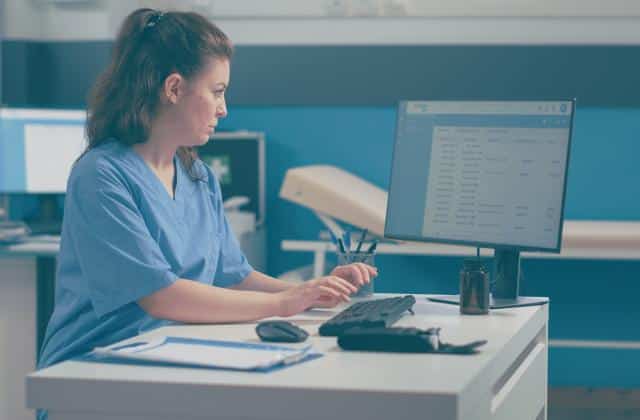Navigating the Best Medic Alert Devices for Enhanced Safety and Peace of Mind
In the dynamic sphere of health and safety, medic alert devices stand as a bulwark of security. They are especially valuable for seniors who seek independence along with a safety net, and for caregivers concerned about the elderly. These gadgets not only bring peace of mind to users but also to their families, who might be anxious about the wellbeing of their loved ones. In this article, we explore the top-tier medical alert systems that blend innovation, reliability, and user-friendliness, focusing on life alert systems, their customer service, and the crucial features such as fall detection that these devices offer.
Understanding the Essence of a Medic Alert Device
At its core, a medic alert device is a wearable piece of technology that can send an emergency signal at the push of a button. It’s a personal safety companion that ensures help is on the way when it’s most needed. The best medical alerts systems come equipped with features tailored to the unique needs of seniors, providing not just emergency services but also a link to family members or caregivers in times of need.

Alert System for Seniors: What to Look for
When considering an alert system for seniors, one must assess the device’s ease of use, the range of the alert system, the battery life, and the speed of the response team upon activation. For seniors, the ideal device should be non-intrusive, simple to operate, and should offer adequate coverage whether they are at home or on the go.
Life Alert Systems: The Vanguard of Emergency Response
Life alert systems are synonymous with emergency response for seniors. Renowned for their “Help, I’ve fallen and I can’t get up” advertising campaign, these systems have become a household name. The best systems offer a direct line to a dedicated monitoring center, ensuring that life alert customer service is quick to assess the situation and dispatch the appropriate assistance, be it medical services or notifying a family member.
Fall Alert Systems: An Essential Feature
One of the most common accidents seniors face is falling. Therefore, the best medical alerts for seniors come with sophisticated fall alert systems. These devices are engineered to detect falls automatically and send an alert without the need for the senior to press a button, which is crucial if the user is incapacitated or unable to reach the device.
Medical Alerts for Seniors: Connectivity and Support
It’s vital for medic alert for seniors to offer a robust support system. This means reliable connectivity to a monitoring center and access to immediate customer service should there be any issues or questions regarding the device. The top-rated systems ensure that users can reach life alert customer service 24/7, with minimal wait times.
LifeAlert System: An Integrated Approach to Safety
LifeAlert, one of the pioneers in the industry, offers a comprehensive system that encompasses not just fall detection but also protection in the event of a fire, CO poisoning, and even home intrusions. Their systems often come with waterproof pendants and wristbands, ensuring that they remain functional in a variety of scenarios, including showers, where falls are common.
The Best Medical Alert Systems: A Mixture of Technology and Compassion
The best medic alert device is one that combines the latest technology with an understanding of the human element. It’s about more than just the tech; it’s about providing a service that respects the dignity and independence of seniors, backed by a compassionate and efficient customer service team. Such a system would be feature-rich, offering GPS tracking for location-based alerts, reminders for medication, and even daily check-in services.
The best medical alerts systems are those that provide a seamless, user-friendly experience while ensuring immediate assistance is always at hand. As technology evolves, these systems are becoming more advanced, but the goal remains the same: to allow seniors to lead independent lives with the reassurance that help is just a button-press away.
If you or your loved one needs care, contact our Angel Care,Inc.,New York home care agency for help, ask your questions by phone at 917-507-7500 or by e-mail at [email protected].

What is a wound care specialist? Wound nurses, often referred to as wound care nurses or wound care specialists, play a pivotal role in the early identification, assessment, and management of wounds. Armed with a deep understanding of wound physiology, infection control, and patient education, these skilled professionals offer invaluable support to patients across the healthcare continuum. Why Involve A Wound Specialist? Enlisting the expertise of a wound care specialist holds paramount importance when dealing with complex and challenging wounds. While general healthcare practitioners possess a broad understanding of wound care, wound specialists offer a depth of knowledge and experience that can significantly impact treatment outcomes. Their specialized training enables them to identify underlying factors that may impede healing, tailor interventions to the specific needs of each patient, and employ advanced techniques to promote optimal wound healing. Moreover, wound specialists collaborate seamlessly with other healthcare professionals, ensuring a comprehensive and multidisciplinary approach to patient care. Home Wound Care: Empowering Patients in Healing with the Expertise of a Wound Care Consultant In addition to clinical settings, wound care consultants and specialists play a pivotal role in empowering patients and caregivers to effectively manage wounds within the comfort of their own homes. This is particularly relevant for chronic wounds that require continuous attention and care. Wound care consultants provide invaluable education on wound assessment, proper dressing changes, infection prevention, and identifying early signs of complications. By equipping patients with the knowledge and skills needed for home wound care, these experts contribute to improved patient compliance, a reduction in hospital visits, and an overall enhancement of quality of life. This patient-centered approach not only accelerates the healing process but also fosters a sense of autonomy and control over one's own journey to recovery. Getting Help from Wound Care Companies: Empowering Your Healing Journey When it comes to effective wound management, seeking assistance from specialized wound care companies can be a transformative step towards better health and well-being. These companies bring together a dedicated team of wound care experts, including wound care consultants and specialist physicians, who are equipped to address a diverse range of wound-related challenges. If you find yourself in need of professional support for your healthcare journey, consider reaching out to our esteemed home care agency, Angel Care Inc., located in the heart of New York. How to Reach Us: If you're seeking expert recommendations and qualified assistance for your wound care needs, don't hesitate to contact us at Angel Care Inc. You can connect with us through the following channels: Phone: Reach out to us at 917-507-7500. Our dedicated team is available to answer your questions and provide the support you need. E-mail: You can also reach us via e-mail at [email protected]. Feel free to share your concerns and inquiries, and our responsive team will get back to you promptly.

As we age, our dietary needs evolve, but the desire for flavorful and satisfying food remains constant. Elderly individuals often need nutrient-dense meals that are easy to prepare, easy to chew, and easy to digest. Catering to these needs doesn't have to be a daunting task. Here are some tips for caregivers on what healthy meals to cook. In this guide, we'll explore a variety of easy meals for the elderly that are both healthful and delicious, ensuring meal times are enjoyable and nourishing. The Art of Simple and Nutritious Cooking Creating meals for older persons does not require intricate recipes or prolonged kitchen time. The focus should be on minimally processed foods that are high in vitamins, minerals, and fiber, and easy on the palate and stomach. Here’s how to strike the perfect balance with meal prep for older adults: Breakfast: A Gentle Start to the Day Start the morning with a warm bowl of oatmeal. It’s a simple yet powerful meal for the elderly, providing soluble fiber that is beneficial for heart and digestive health. Top it with fresh berries, a sprinkle of cinnamon, and a dollop of Greek yogurt for a protein boost. Lunch: Light and Satisfying A hearty soup or stew can be a perfect lunchtime meal, especially for those who prefer softer foods. Lentil soup packed with vegetables offers ample protein and nutrients. Prepare in large batches and freeze in portions for a quick and healthy meal that's easy to reheat. Dinner: Nutrient-Rich Comfort Food For a fuss-free dinner, baked salmon with a side of steamed broccoli and sweet potatoes provides a meal rich in omega-3 fatty acids, vitamins, and antioxidants. Such a meal is not only a delight to the senses but also a boon for maintaining muscle mass and cognitive function in the elderly. Snacks: Wholesome Nibbles Snacks are an important part of the elderly meal plan to maintain energy levels throughout the day. A small handful of nuts or sliced fruits can be refreshing and packed with nutrients. A smoothie can also serve as a snack or a meal replacement, blending leafy greens, a banana for sweetness, and protein powder for an extra healthful punch. Food Prep for Seniors: Making it Manageable Meal prep for older adults should prioritize convenience and accessibility. Pre-chopping vegetables, portioning out servings, and utilizing kitchen appliances like slow cookers can simplify the process. Slow-cooked meals can be particularly beneficial as they often result in tender, easy-to-chew outcomes that are ideal for seniors. Healthy Senior Meals: A Balanced Plate Healthy meals for the elderly should include a good balance of lean protein, complex carbohydrates, healthy fats, and plenty of fruits and vegetables. Fish, chicken, and lean meats; brown rice, quinoa, and whole-grain bread; avocados, olive oil, and nuts; and a variety of colorful produce will make for a rounded and appetizing diet. Nutritious Meals for the Elderly: The Importance of Hydration While focusing on solid foods, one must not forget the importance of hydration. Soups and broths, along with regular water intake, can help maintain proper hydration levels, which is often a concern in older adults. Elderly Meal Plan: Structure and Variety Creating a weekly meal plan can aid in ensuring a variety of nutrients are consumed and can help to avoid mealtime monotony. Incorporating themes such as "Meatless Mondays" or "Fish Fridays" can add an element of fun and anticipation to eating. In closing, meals for the elderly should be thought of as a fusion of sustenance and simplicity. The aim is to create easy meals for the elderly that offer nutritional benefits without overwhelming them with complicated recipes or extensive cooking times. By following these principles, we can ensure that our elderly loved ones are well-fed, happy, and healthy. Team of Angel Care,Inc.,New York home care agency has wide range of services, if you need help or want to know more please contact us: by phone at 917-507-7500 or by e-mail at [email protected].



